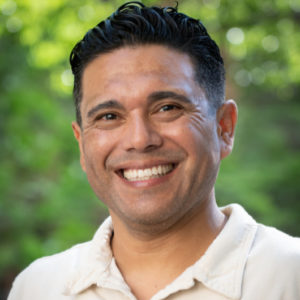A Note on Bold Ideas, Emerging Leaders: Emerging Fellows Journal 2024
August 1, 2024
By Katie Kirchner, Eric A. Paul
In her 1993 dystopian science fiction novel Parable of the Sower, Octavia Butler wrote: “The only lasting truth is change.” That quote—from a story set in the distant year of 2024—feels particularly apt for the moment we’re living through, where news cycles and political conditions seem to shift faster than it is possible to keep up with.
If we believe that change might be our one constant, then it should be clear that our fight must be for the kind of change we want and need. There are many ways to do that; the Roosevelt Network Emerging Fellows do so by developing around-the-corner policy ideas that could fundamentally change their communities. They complete a yearlong program in which they research, write, speak with community members and subject-matter experts, and produce what you’re about to read: policy briefs that embrace the intersections of policy, power, and narrative change.
Casey Williams and Olivia Ligman examine the unequal balance of power between workers and employers in low-wage industries like food service, retail, and health care. Williams examines how better policies could empower workers, such as a wage checker law in New York that would give workers the right to appoint a representative to ensure they are paid their full wages. Ligman turns to Wisconsin, exploring how government can create and promote policies that produce equity for workers there. Aryen Shrestha and Lina Hunt analyze the housing affordability crisis in Massachusetts and Virginia, respectively, and how local political participation and local policies can address the crisis and build the power of local communities.
Henry Means documents how bold and imaginative infrastructure policy solutions can help rectify past wrongs and provide justice for Seattle communities, while Mara Pusic highlights the need for governance reforms that ensure community engagement and democratic accountability in Michigan’s renewable energy transition. Catherine Tong and Evelyn de la Cruz illustrate how unchecked corporate power in energy utilities and Big Tech, respectively, requires a strong government response that establishes guardrails to protect California residents.
Paradigm-shifting policy work is a bit like sci-fi world-building: It requires creativity to imagine a world different from our own and to think about what would lead to making that world a reality. Unfortunately, there are too many eerie parallels—from climate destruction to severe wealth inequality—between the dystopian world Butler envisioned 30 years ago and the one that threatens to emerge today. These ideas, however, are affirmatively trying to steer us away from that dystopia and toward a future where people thrive and communities are safe and inclusive of all.
![]()
In the new collection of undergraduate research papers, student authors from the Roosevelt Network Emerging Fellowship program engage deeply with the failures of neoliberal thought and detail how we can shift paradigms in service of our worldview and the advancement of progressive policy.
Read the journal here.
The Roosevelt Network’s Emerging Fellowship is a yearlong fellowship experience focused on policy writing and designed for students in the last one to two years of their undergraduate degree program. This rigorous and advanced fellowship offers progressive-minded students the opportunity to dive deeper into policy research and writing, receive mentorship from Network alumni and Roosevelt Institute staff, be in community with other passionate policy wonks, and ground themselves in Roosevelt’s vision for a just economy and multiracial democracy. Fellowship alumni become members of our national Network, with continued opportunities for mentorship and programming for young professionals.

